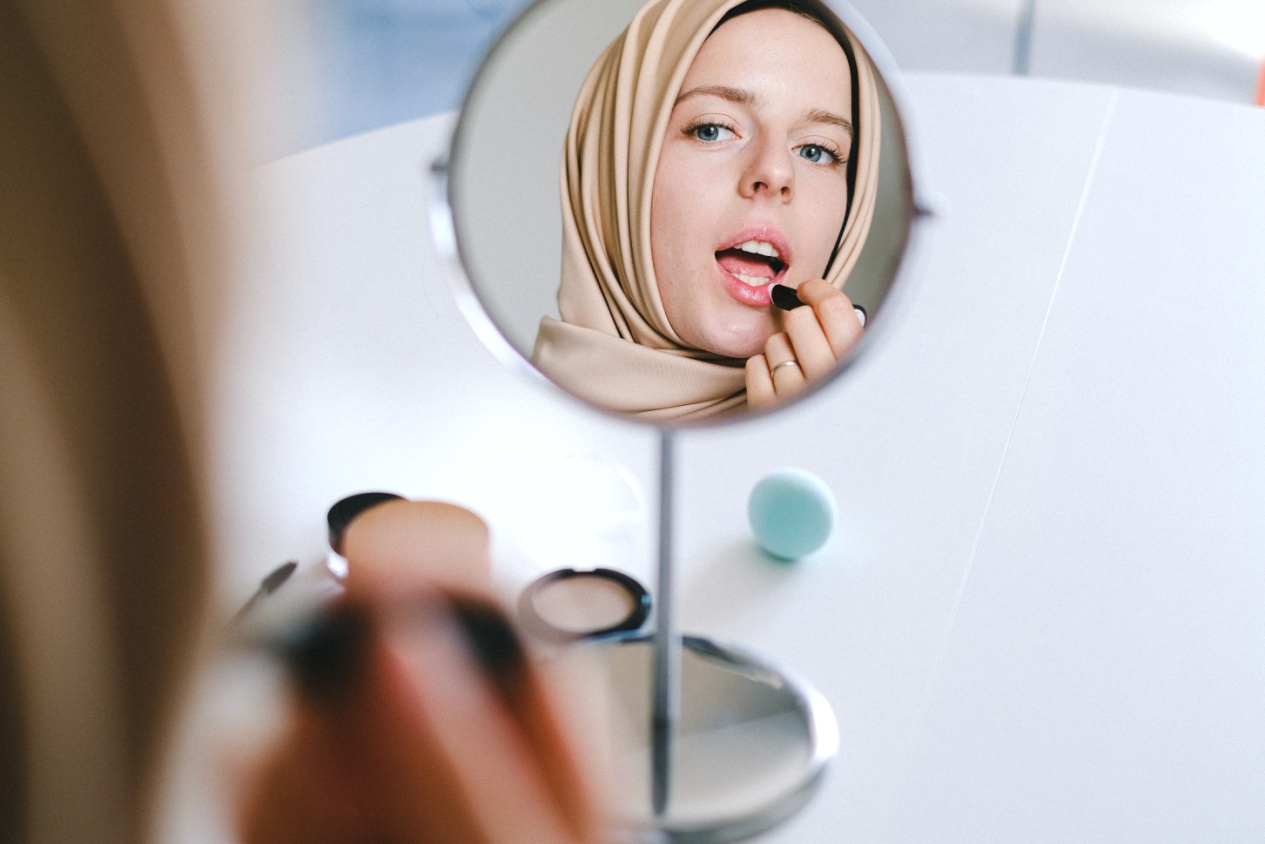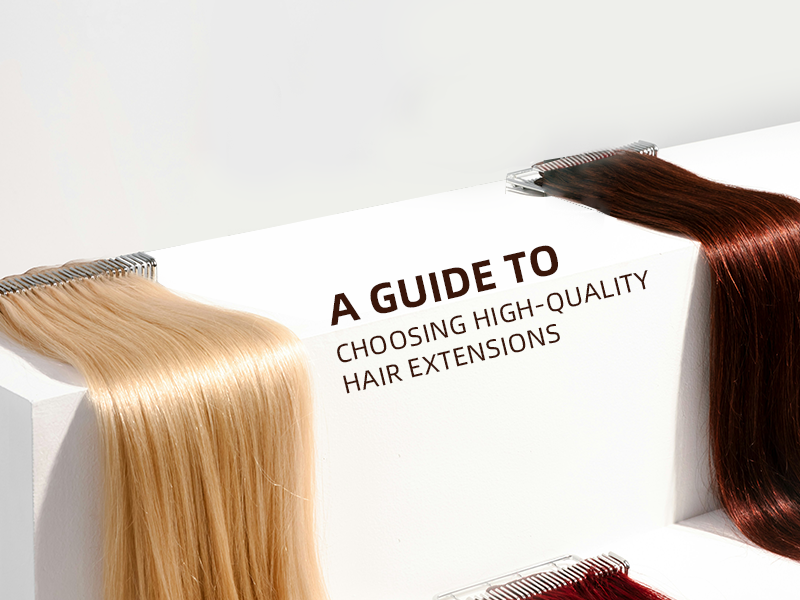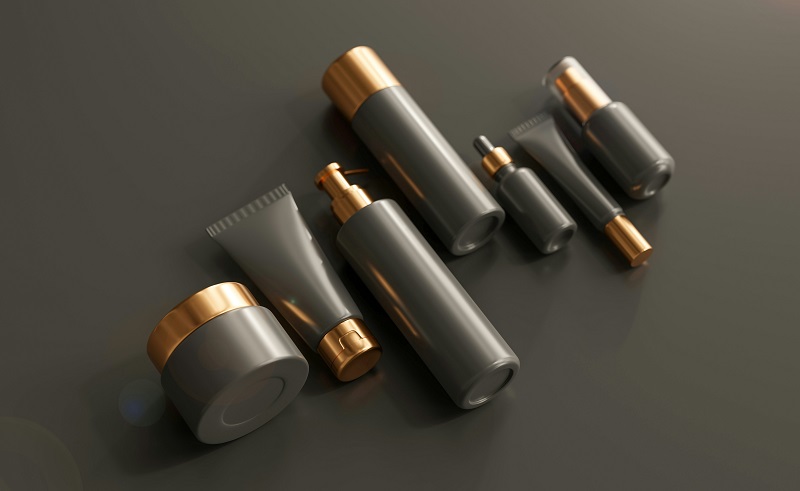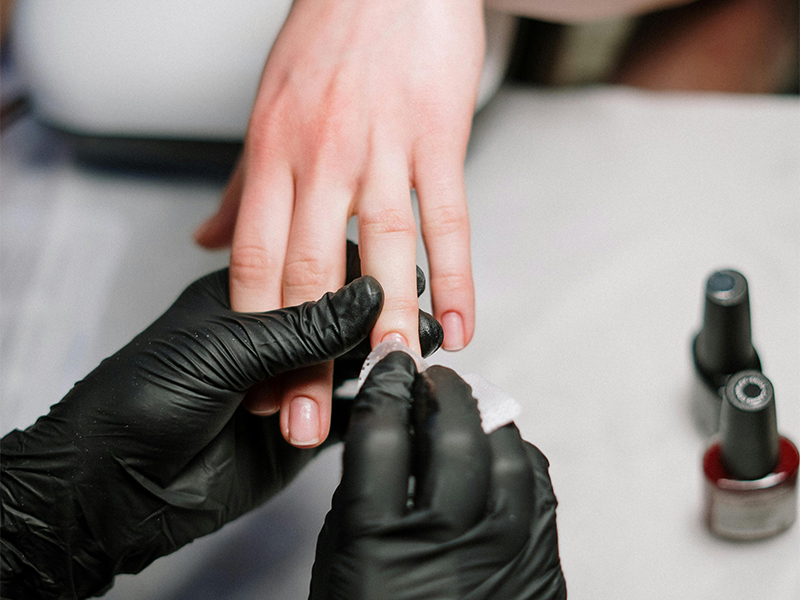Halal cosmetics have witnessed significant adoption among the Muslim consumers owing to the increased demand for personal grooming and trending beauty products that adhere to religious loyalties. The growth of the global halal cosmetics market is driven by rise in Muslim population, development of the halal market, and increase in compliance of halal certification. The multinational players such L’Oreal, Unilever, P&G, and others have potential opportunities to penetrate into the halal cosmetics industry with an aim to cater to the increasing demands for halal cosmetic products.
Why halal cosmetics
In general, the understanding of halal cosmetics needs to fulfill two parts. First is the thayyib part. And the second part is the halal. Thayyib part means is regulatory compliance in terms of safety, quality and also good manufacturing practice. And halal part is the halal compliance, referring to the syariah, and also the implementation of halal assurance system. So the halal product means that the product can be traced that it is produced from halal materials in the production facility that is not contaminated or ‘in contact’ by haram and/or najis materials.
The halal cosmetic market size is estimated to be around 1.9 billion people. Yet, the specific needs of this population have remained largely undeserved by the cosmetics and personal care industry. It’s rather a matter of filling a huge void where demand has existed for some time that leads the rapid growth of the halal beauty market, while not a sudden emerging trend. Meanwhile, Halal products are largely associated with other values of the clean beauty movement, social and environmental responsibility, giving them appeal to broader consumer segments.
Global Islamic Economy Report presents us a further growth for Halal cosmetics. The global halal cosmetic market was valued at $66 billion in 2019, growing 3.4% from 2018, and is forecast to reach to $95 billion by 2024, according to Global Islamic Economy Report 2019/20. Given the impact of Covid-19, the Global Islamic Economy Report 2020/21 anticipates that Muslim spending on cosmetics will drop 2.5% to $64 billion. However, it’s expected to grow at a CAGR of 2.9% to reach $76 billion by 2024.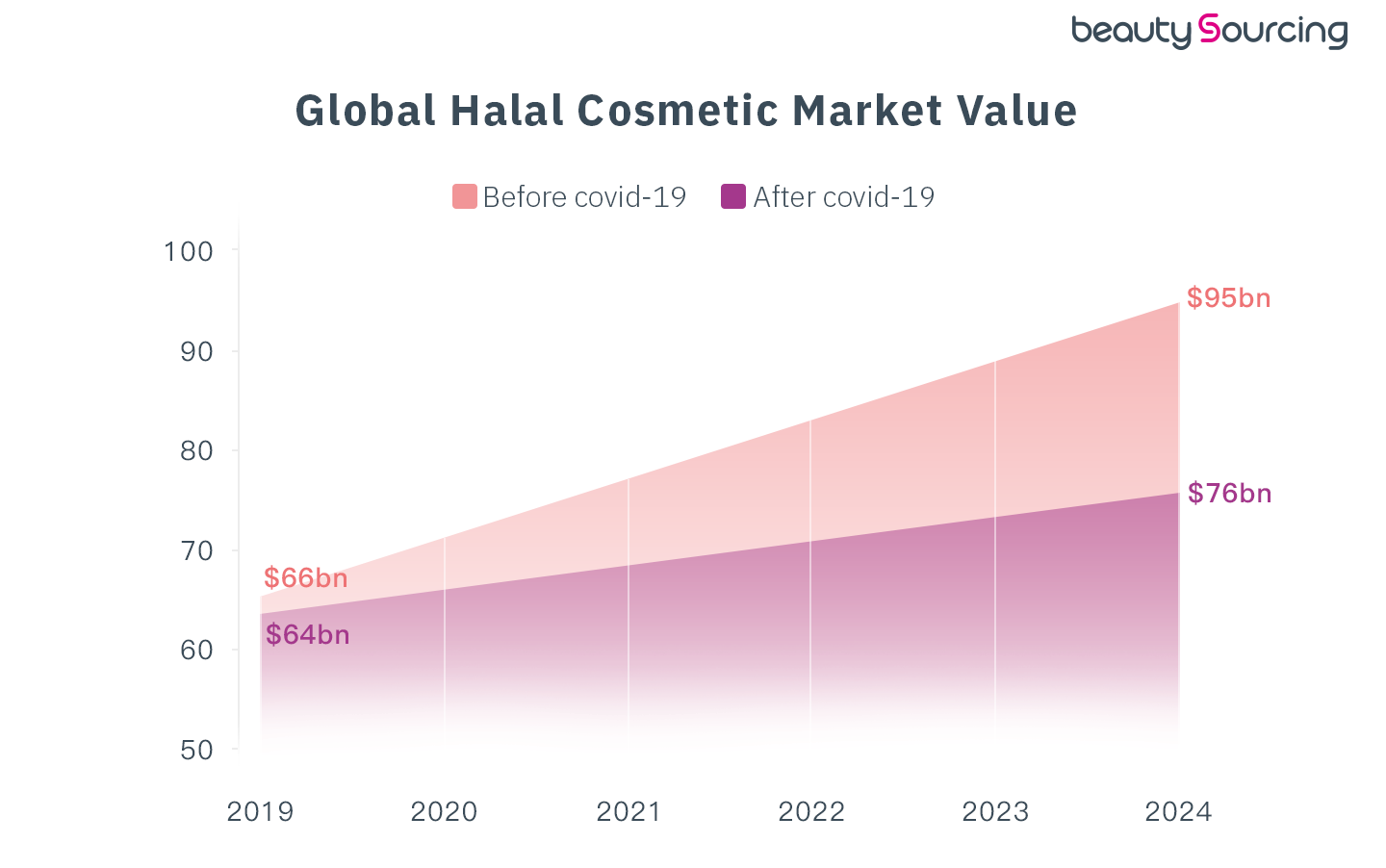
The top five halal cosmetic consumer markets in 2019 were India($6bn), Indonesia($4bn), Russia($4bn), Malaysia($4bn) and Turkey($4bn). Hot sectors for Halal cosmetic growth in 2020 include halal nail polish, halal face cream, scents& perfumes, halal cosmetics e-commerce, sustainable & halal cosmetics. New business or cosmetic brands can feasibly generate strong revenues across halal cosmetics space.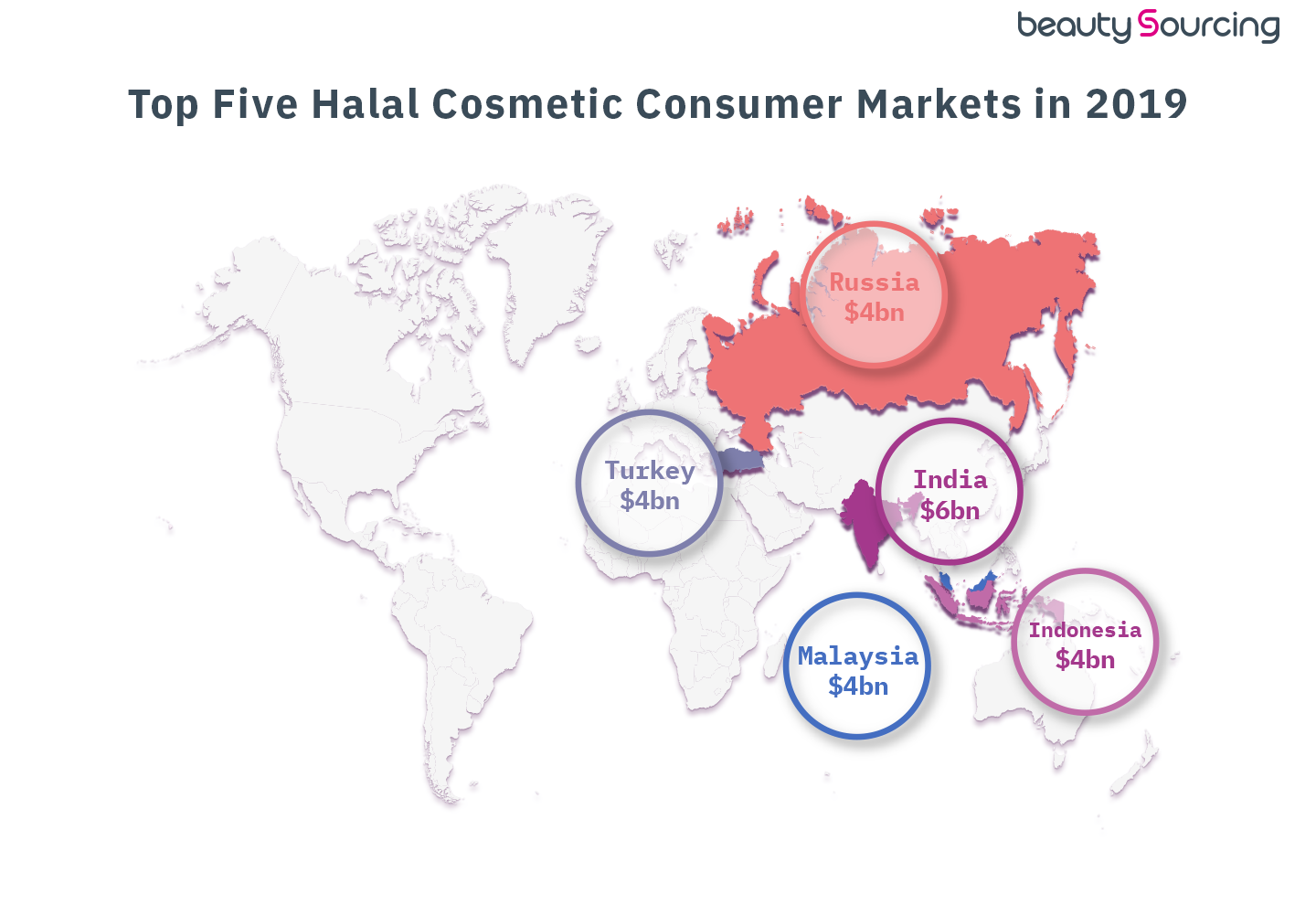
The general impact of Halal
● Raw material. It will be limited source for the halal raw material, which means the raw material already halal certified is still very limited. And it will also increase in raw material cost probably if you change the raw material, or you do some reformulation.
● Product. It might be pending product’s innovation, because there is another process for halal certifications, and probably you need some reformulation if necessary. And it also probably increases in product price.
● Process. You probably need to modify plant layout facilities and processes, invest in new facility or equipment as well as create or update the existing SOPs, manuals and policy.
● People. You need more skilled manpower to assess ingredients and products, and also you need to invest in staff training on halal standards, guidelines and related areas.
Challenges and opportunities
Here are some challenges facing the cosmetic industry. The first is cosmetic’s ingredient and formulation. You know that the formulation and ingredient for the cosmetic is very complex. You will face some mixtures, fragrance and others, which will be challenges to prove with sufficient supporting documents. In terms of halal regulation and standard, presently, there is no harmonized halal regulations, standards, certification procedures regionally or globally. For the halal certificate recognition at the moment, there is no truly multilateral reciprocal recognition between halal certification bodies. For example, if you want to export your products to several different countries, then you have to fulfill different requirements or different halal certification processes. Last but not least, it’s infrastructure’s investment. You need some ability to do investment in R&D, plants, or processes & human resources.
Despite all the challenges, opportunities follow. Presently the halal not only become the religious symbol, but also become a symbol of quality assurance. The halal industry has evolved to a holistic concept that is becoming a global symbol of quality assurance choice, not only for Muslim, but also for non-Muslim. And if you have halal products, you can reach wider largest market segment of Muslim population, and at the time gain consumer’s trust and loyalty. So in term of the halal concept, if you link it with the clean beauty or ethical beauty, certified halal products can bring ‘new product concept and uniqueness’ that can complement with other trend of echo-ethical lifestyle products, such as natural, organic, vegan, hygiene and safe products.
Recommendations for the cosmetic industry
If you really want to provide your product with halal certification, you need to conduct a feasibility study on the halal proposition and develop a halal product pipeline during the phasing period of halal certification. You can also do alignment with echo-ethical product labels and choose halal certifies bodies which have wider network on mutual recognition of halal certification. At the same time, you need to prepare for your halal assurance system between your organizations.
How to promote the halal cosmetic industry? The government is expected provide the incentive to boost the growth of halal cosmetic raw materials, ingredients and finished product industry. And we need to think about the harmonized standards and reciprocal arrangements to reduce complexity, avoid multiple certifications and promote the streamline of the processes. Probably we can create an institution to facilitate the development of Halal Ecosystem from upstream to downstream process, which means from raw material to the distribution activities. Last but not least, in terms of human capital and process development, we need the skilled and competent resource in the industry and regulators level in halal compliance and certification process management.





